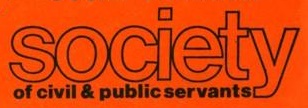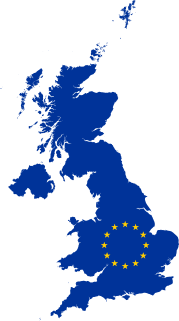Related Research Articles

HM Customs and Excise was a department of the British Government formed in 1909 by the merger of HM Customs and HM Excise; its primary responsibility was the collection of customs duties, excise duties, and other indirect taxes.

The Board of Trade is a British government body concerned with commerce and industry, currently within the Department for International Trade. Its full title is The Lords of the Committee of the Privy Council appointed for the consideration of all matters relating to Trade and Foreign Plantations, but is commonly known as the Board of Trade, and formerly known as the Lords of Trade and Plantations or Lords of Trade, and it has been a committee of the Privy Council of the United Kingdom. The board has gone through several evolutions, beginning with extensive involvement in colonial matters in the 17th century, to powerful regulatory functions in the Victorian Era, to virtually being dormant in the last third of 20th century. In 2017, it was revitalised as an advisory board headed by the International Trade Secretary who has nominally held the title of President of the Board of Trade, and who at present is the only privy counsellor of the board, the other members of the present board filling roles as advisers.

The Southern African Customs Union (SACU) is a customs union among five countries of Southern Africa: Botswana, Eswatini, Lesotho, Namibia and South Africa. Its headquarters are in the Namibian capital, Windhoek. It was established in 1910.

The Association of Scientific, Technical and Managerial Staffs (ASTMS) was a British trade union which existed between 1969 and 1988.

The Waterguard was a division of HM Customs and Excise (HMCE) responsible for the control of vessels, aircraft, vehicles and persons arriving into and departing from the United Kingdom. This included crew members and passengers, as well as persons travelling on foot. Waterguard officers were responsible for applying the allowances provided for in law and for collection of customs and excise revenue on the excess. The officers were also responsible for the enforcement of the prohibitions and restrictions, including controlled drugs and plant and animal health. With the reorganization of HM Customs and Excise in 1972 the Waterguard was renamed the 'Preventive Service' and the functions of the Waterguard continued to be carried out as part of the HMCE until the establishment of the UK Border Agency in 2008.
HM Customs was the national Customs service of England until a merger with the Department of Excise in 1909. The phrase 'HM Customs', in use since the Middle Ages, referred both to the customs dues themselves and to the office of state established for their collection, assessment and administration.

The Royal Malaysian Customs Department, abbreviated RMC or JKDM, is the Malaysian Government agency responsible for administrating the nation's indirect tax policy, border enforcement and narcotic offences. In other words, KDRM administers seven (7) main and thirty-nine (39) subsidiary laws. Apart from this, KDRM implements 18 by-laws for other government agencies. KDRM is now known as JKDM when Ibrahim Jaapar took over as the leader of the department in 2009.

The National Union of Scottish Mineworkers (NUSW) is a trade union in Scotland, founded in 1894 as the Scottish Miners Federation. It joined the Miners' Federation of Great Britain, and in 1914 changed its name to National Union of Scottish Mineworkers. It survives as the National Union of Mineworkers.
The Lancashire and Cheshire Miners' Federation (LCMF) was a trade union that operated on the Lancashire Coalfield in North West England from 1881 until it became the Lancashire area of the National Union of Mineworkers in 1945.
The British Steel Smelters' Association (BSSA) was a trade union representing steel smelters and workers in related trades in Britain.

The Society of Civil and Public Servants (SCPS) was a trade union representing middle-ranking civil servants in the United Kingdom.
The North East Lancashire Amalgamated Weavers' Association was a trade union federation of local weavers' unions in part of Lancashire in England, in the 19th century.

The Accession of the United Kingdom to the European Communities (EC) – the collective term for the European Coal and Steel Community (ECSC), the European Economic Community (EEC) and the European Atomic Energy Community (EAEC) – took effect on 1 January 1973. This followed ratification of the Accession treaty which was signed in Brussels on 22 January 1972 by the Conservative prime minister Edward Heath, who had pursued the UK's application to the EEC since the late 1950s. Denmark and Ireland also joined as part of the same expansion but Norway, who had signed the treaty, declined to ratify it and so it was amended to exclude that country. The ECSC and EEC would later be integrated into the European Union under the Maastricht and Lisbon treaties in the early 1990s and mid-2000s.
The Customs and Excise Group was a trade union representing civil servants working in customs and excise in the United Kingdom.

The Public Service Executive Union (PSEU) was a trade union representing civil servants in Ireland.
Managerial and Professional Officers (MPO) was a trade union representing senior staff working for local authorities in the United Kingdom.
The Ministry of Labour Staff Association (MLSA) was a trade union representing civil servants working in the British Ministry of Labour.
The Civil Service Alliance was a trade union federation bringing together civil servants in the United Kingdom.
The Veterinary Officers' Association is a trade union representing veterinarians who work for the Irish civil service.
The Customs and Excise Preventive Staff Association (PSA) was a trade union representing customs officials in the United Kingdom.
References
- ↑ Marsh, Arthur; Ryan, Victoria (1980). Historical Directory of Trade Unions. Vol. 1. Farnborough: Gower. pp. 73–74, 217. ISBN 0566021609.
- 1 2 3 Smethurst, John B.; Carter, Peter (June 2009). Historical Directory of Trade Unions. Vol. 6. Farnham: Ashgate Publishing. pp. 386–388. ISBN 9780754666837. LCCN 80-151653.